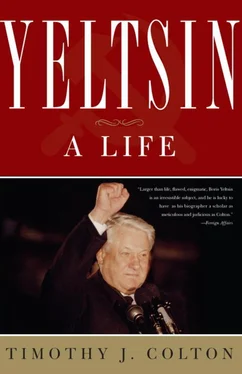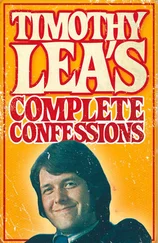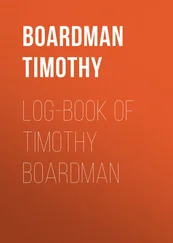11 “Boris Yel’tsin: ya ni o chëm ne zhaleyu.”
12 Among the foundation’s other projects have been help for a Russian-language university in Kyrgyzstan, musical training in orphanages, a pianists’ contest in Siberia, a nursing home for army veterans, a clinic for juvenile cancer patients, small war memorials, a film series on “Freedom in Russia,” and construction of a tennis and sports complex in Yekaterinburg.
13 Kirill Dybskii, “Ot pervogo litsa: vsë pravil’no” (From the first person: everything is fine), Itogi, January 30, 2006.
14 “Boris Yel’tsin: ya ni o chëm ne zhaleyu” (italics added).
15 Ibid.
16 The new lyrics were written by Sergei Mikhal’kov, now eighty-seven, the author of children’s books who wrote the original words for the Soviet anthem in 1944. Successive pre-Soviet, Soviet, and post-Soviet Russian anthems can be downloaded from http://www.hymn.ru/index-en.html.
17 Mikhail Kasyanov (born in 1957), Putin’s prime minister from 2000 to 2004, had been Yeltsin’s last finance minister in 1999. Aleksei Kudrin, the new minister of finance (born 1960), was first deputy minister from 1997 to 1999. The minister of industry and trade, German Gref (born 1964), was first deputy minister of state property from 1998 to 2000.
18 The phrase “restrained support” is from “Boris Yel’tsin: ya ni o chëm ne zhaleyu” and was specifically applied to changes in the federal system. Yeltsin in that interview (December 2000) expressed no reservations about the move against Berezovskii, who he said “did more harm than good.” He did not comment on Gusinskii, who had spent several days in jail in May 2000.
19 Yeltsin’s rethinking of the first war is apparent in Dybskii, “Ot pervogo litsa.” Zelimkhan Yandarbiyev, who negotiated the 1996 cease-fire with Yeltsin and was then acting president of Chechnya, went into exile during the second war and was assassinated by Russian agents in Qatar in 2004. Federal forces killed Aslan Maskhadov, who signed the 1997 peace treaty and was president of the republic until the second Russian invasion, in Chechnya in 2005. Shamil Basayev, the organizer of the 1995 raid on Budënnovsk and the 1999 incursion into Dagestan, was killed in 2006.
20 These actions are well analyzed in Andrew Jack, Inside Putin’s Russia (Oxford: Oxford University Press, 2004); and Richard Sakwa, Putin: Russia’s Choice, rev. ed. (London: Routledge, 2008).
21 “Gusinsky’s cynical brilliance throughout the campaign against him was to cloak his commercial interests and political ambitious in the language of freedom of speech.” Jack, Inside Putin’s Russia, 155. Berezovskii was less cynical, and had always treated ORT as a source of influence, not a money maker.
22 Boris Nemtsov, third interview with the author (April 12, 2002). Instead of Yeltsin, Yevgenii Primakov headed up the new board. The station was soon converted into a sports channel and went off the air in 2003.
23 Yegor Gaidar, “On ne khotel nasiliya, no tol’ko on ne byl slabakom” (He did not want to use force, but he was no weakling, either), Novoye vremya/New Times, April 30, 2007.
24 Details of the interaction from interviews with family members.
25 Author’s conversation with Putin on the sidelines of the Valdai Discussion Club, Bocharov Ruchei residence, Sochi, September 14, 2007.
26 Dybskii, “Ot pervogo litsa.”
27 Andrei Kolesnikov, “Boris Yel’tsin poproshchalsya so svoyei epokhoi” (Boris Yeltsin said good-bye to his epoch), Kommersant-Daily, February 6, 2006.
28 “A Conversation with Billy Graham,” http://www/midtod.com/9612/billygraham.phtml.
29 Father Georgii Sudenov in “Ushël Boris Yel’tsin” (Boris Yeltsin has departed), Izvestiya, April 24, 2007. Sudenov, the deacon of the church in the Moscow suburb of Troparëvo, was sometimes invited to dine with the Yeltsins. Before eating, he always said grace and Yeltsin joined him in singing the Slavic hymn “Mnogaya leta” (Many years).
30 “Boris Yel’tsin: ya khotel, chtoby lyudi byli svobodny.”
31 Second Yeltsina interview.
32 Aleksandr Gamov, “Utraty” (Losses), Komsomol’skaya pravda, April 25, 2007.
33 Second Yeltsina interview.
34 Andrei Kolesnikov, “Poslednii put’ pervogo prezidenta” (The first president’s last road), Kommersant-Daily, April 26, 2007. Gorbachev and Yeltsin were both at Putin’s first inauguration and a few other ceremonial events but studiously avoided one another. Another notable attendee at the funeral was Aleksandr Rutskoi, the vice president Yeltsin put in jail during the constitutional conflict of 1993. Ruslan Khasbulatov, Rutskoi’s ally against Yeltsin, skipped the funeral, as did Aleksandr Korzhakov.
35 The press reported as fact or rumor that Naina’s handkerchief contained an icon or a cross. One journalist claimed that the crucifix from Yeltsin’s christening in 1931 had been saved all these years and was buried with him. These stories were all untrue.
1 Mikhail Gorbachev, who attended the funeral, took a moderate but still critical position when he said in a statement that Yeltsin would be remembered for his “tragic fate” and misguided policies. He softened his response in a press interview in which he noted that he and Yeltsin had both set out to improve life for the people.
2 Quoted at http://gazeta.ru/politics/yeltsin/1614107.shtml.
3 Quoted in Yekaterina Grigor’eva and Vladimir Perekrest, “Provodili po-khristianski” (He was given a Christian sendoff), Izvestiya, April 26, 2007.
4 Viktor Shenderovich, “Yel’tsin,” at http://www.shender.ru/paper/text/?file=154.
5 Commencement address at Washington University, St. Louis, May 19, 2006, at http://www.olin.wustl.edu/discovery/feature.cfm?sid=668&i=30&pg=8.
6 “Boris Yeltsin and His Role in Russian History,” at http://bd.english.fom.ru/report/map/dominant/edomt0718_2/ed071820.
7 The latest survey for which data are available was done by the Public Opinion Foundation in February 2006. The question was whether Gorbachev had done more good or more harm to the nation, and a middle category, for good and harm in equal measure, was available. Eleven percent of Russians thought Gorbachev had done more good than harm, 23 percent that he had done them in equal measure, 52 percent that he had done more harm than good, and 14 percent found it hard to answer. “Mikhail Gorbachev, President of the USSR,” at http://bd.english.fom.ru/report/cat/societas/rus_im/rus_history/gorbachev_m_s_/etb060812.
8 Sidney Hook, The Hero in History: A Study in Limitation and Possibility (New York: Humanities Press, 1943), 156–57. The Russian Lenin was the only one of Hook’s examples about whom he wrote an entire chapter. The prevalent image in many recent studies of social and political change is that of “path dependency,” whereby positive reinforcement, short time horizons, and inertia keep things on the same track over extended periods of time. See in particular Paul Pierson, Politics in Time: History, Institutions, and Social Analysis (Princeton: Princeton University Press, 2004), chap. 1. Before a path can be established, however, it has been pointed out that relatively small factors, such as choices by leaders or bargains struck among different groups, may push things down one of several competing paths, so that the pattern is one of “periods of relative (but not total) openness, followed by periods of relative (but not total or permanent) stability.” Ibid., 53. Yeltsin made his mark in a period of relative openness in which Hook’s metaphor of a fork in the road holds up well.
9 Erik H. Erikson, Gandhi’s Truth: On the Origins of Militant Nonviolence (New York: Norton, 1969), 113, 402.
Читать дальше












